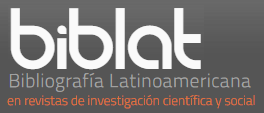Mother’s perception on breastfeeding support: a programmatic vulnerability perspective.
DOI:
https://doi.org/10.5433/1679-0367.2013v34n1p73Keywords:
Breastfeeding. Health Services. Health Vulnerability.Abstract
This research aimed to understand the speeches of mothers who received support from the health service and to understand the determining factors that oriented their decision about feeding their babies aged six months old or younger. Also, we analyzed the vulnerability points that influenced the decision to not breastfeed. This is a descriptive study with a qualitative approach with mothers who gave birth from 2002 to 2008 and received health attention from three Basic Health Centers, located in different areas in Londrina - PR. Bardin’s content analysis was used to analyze the speeches, and Ayres’ Vulnerability concept was applied as theoretical referral. Five categories emerged from content analysis: Maternal feelings related to breastfeeding; The family’s influence in exclusively breastfeeding; Breastfeeding difficulties; Information gathered in different health attention contexts; Support from health professionals. It is possible to identify positive and negative interventions from health professionals, which create vulnerabilities or hinder its reduction. The barriers to successful breastfeeding may be reachable through professional interventions created as an alternate solution, implementing technical and scientific knowledge. Our attitudes must be thought in order to reduce vulnerabilities and therefore reach higher exclusive breastfeeding rates.
Downloads
Downloads
Published
How to Cite
Issue
Section
License
Copyright (c) 2013 Semina: Ciências Biológicas e da Saúde

This work is licensed under a Creative Commons Attribution-NonCommercial 4.0 International License.
adopts the CC-BY-NC license for its publications, the copyright being held by the author, in cases of republication we recommend that authors indicate first publication in this journal.
This license allows you to copy and redistribute the material in any medium or format, remix, transform and develop the material, as long as it is not for commercial purposes. And due credit must be given to the creator.
The opinions expressed by the authors of the articles are their sole responsibility.
The magazine reserves the right to make normative, orthographic and grammatical changes to the originals in order to maintain the cultured standard of the language and the credibility of the vehicle. However, it will respect the writing style of the authors. Changes, corrections or suggestions of a conceptual nature will be sent to the authors when necessary.
This Journal is licensed with a license Creative Commons Assignment-NonCommercial 4.0 International.














